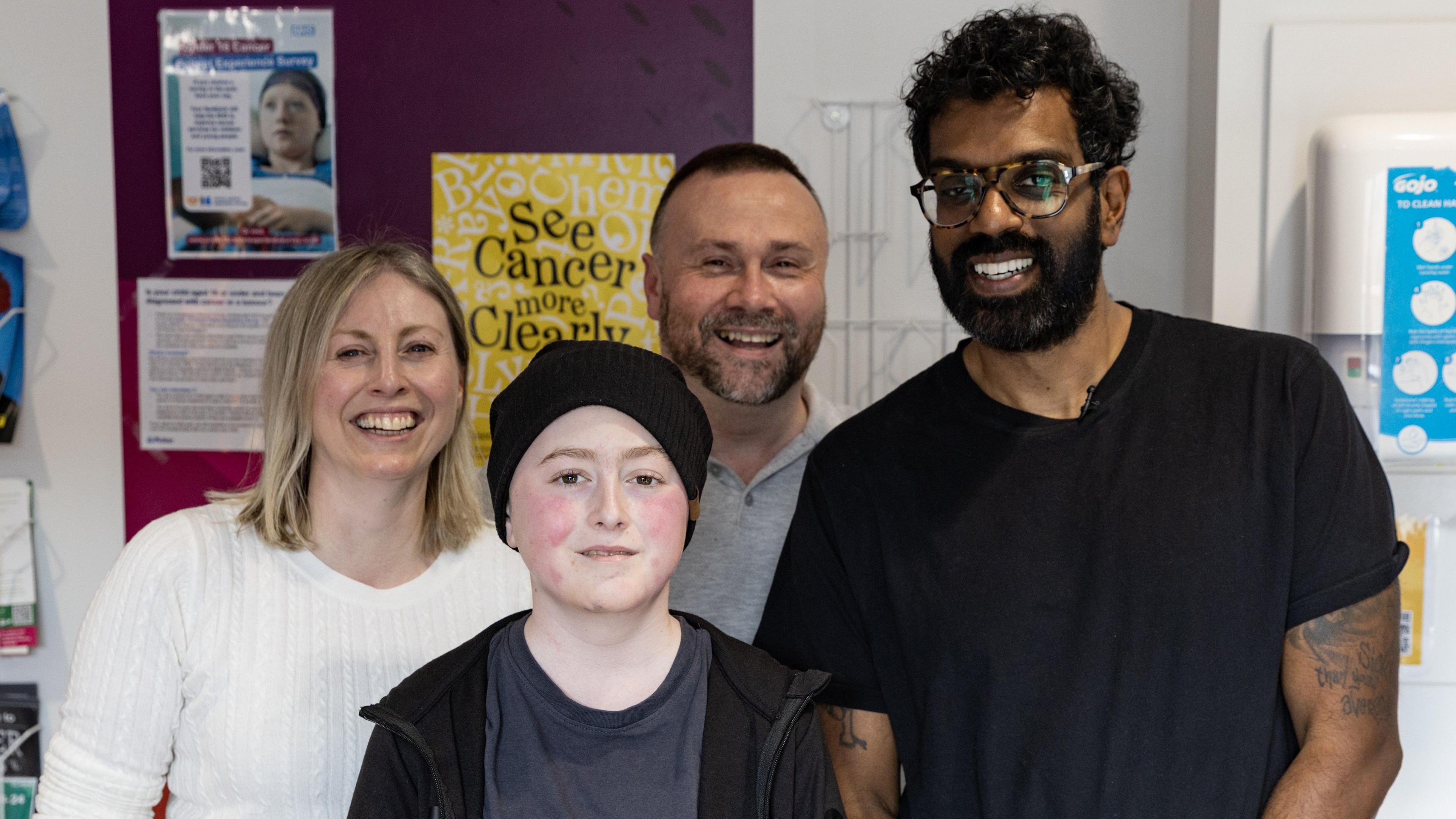Baby girl given new prosthetic eye after rare cancer
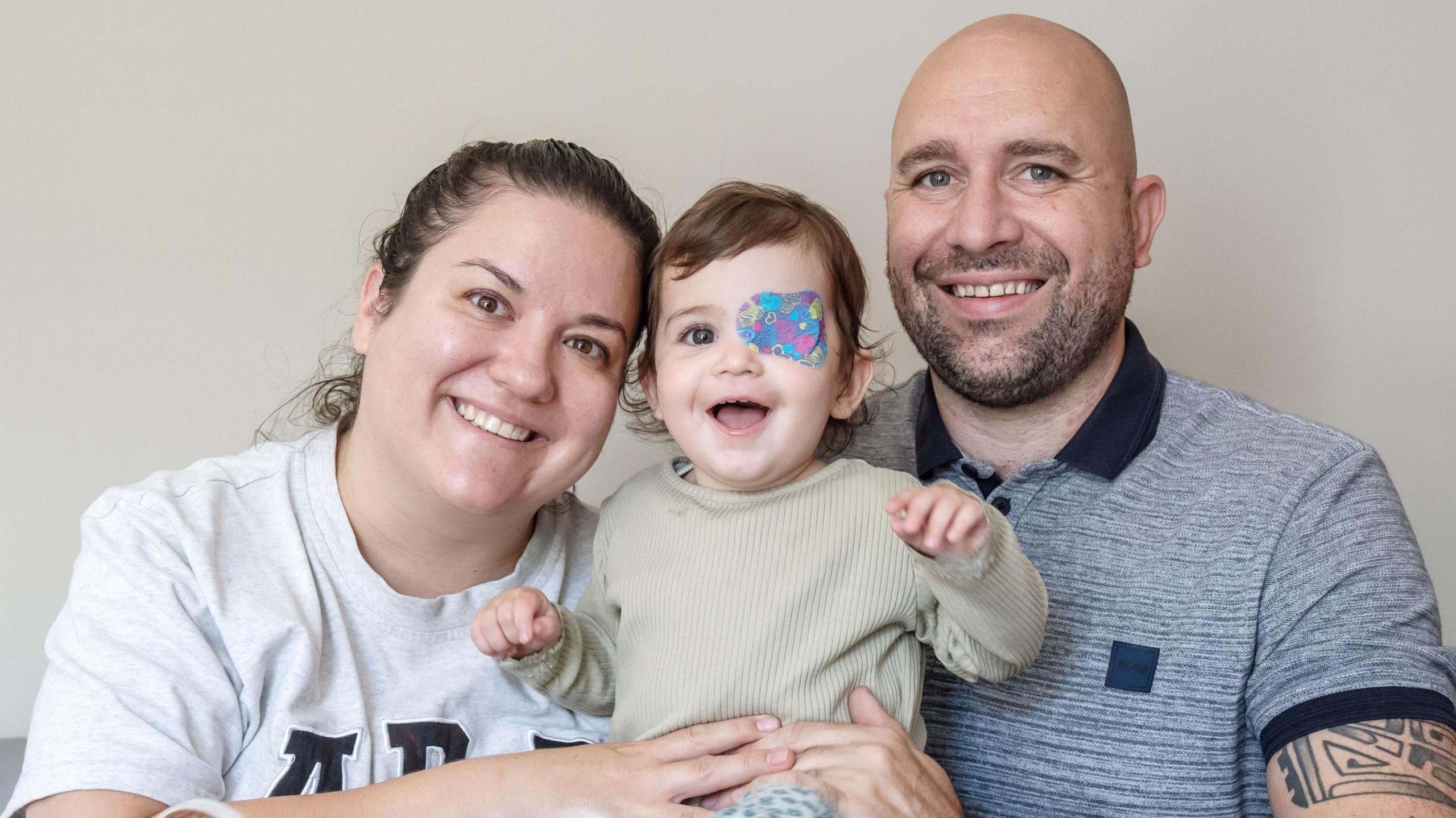
Clinicians at Alder Hey Children's Hospital have designed a prosthetic eye for Nuala
- Published
Medics have used a novel way to design a prosthetic eye for a baby girl who had a rare form of cancer.
Nuala Mulholland, from Liverpool, lost her eye to cancer last year after being diagnosed with Alveolar soft part sarcoma, a rare tissue tumour that affects about six people in England each year.
The prosthetic for the 20-month-old is only a little bigger than a pound coin.
Her mother Megan Mulholland said it was "amazing" what doctors had been able to achieve.
'Really resilient'
The 36-year-old praised the way her daughter has taken to her new prosthetic.
She said: "Like everything she's just adapted so well.
"She's been really, really resilient - that's what's helped us get through. Three days after one of her operations we were in soft play."
The process of making the prosthetic meant the toddler did not have to go under anaesthetic, which was a "relief" to Mrs Mulholland, and her dad, Richard Mulholland, 39.
It was initially thought Nuala had a subconjunctival haemorrhage, where a tiny blood vessel breaks underneath the clear surface of the eye.
But when the eye started to bulge slightly, Mrs Mulholland took her daughter to hospital and days later the family were told she had cancer.
"It was just horrendous," Mrs Mulholland said.
"When they called to say after her MRI it was a tumour, it was devastating."
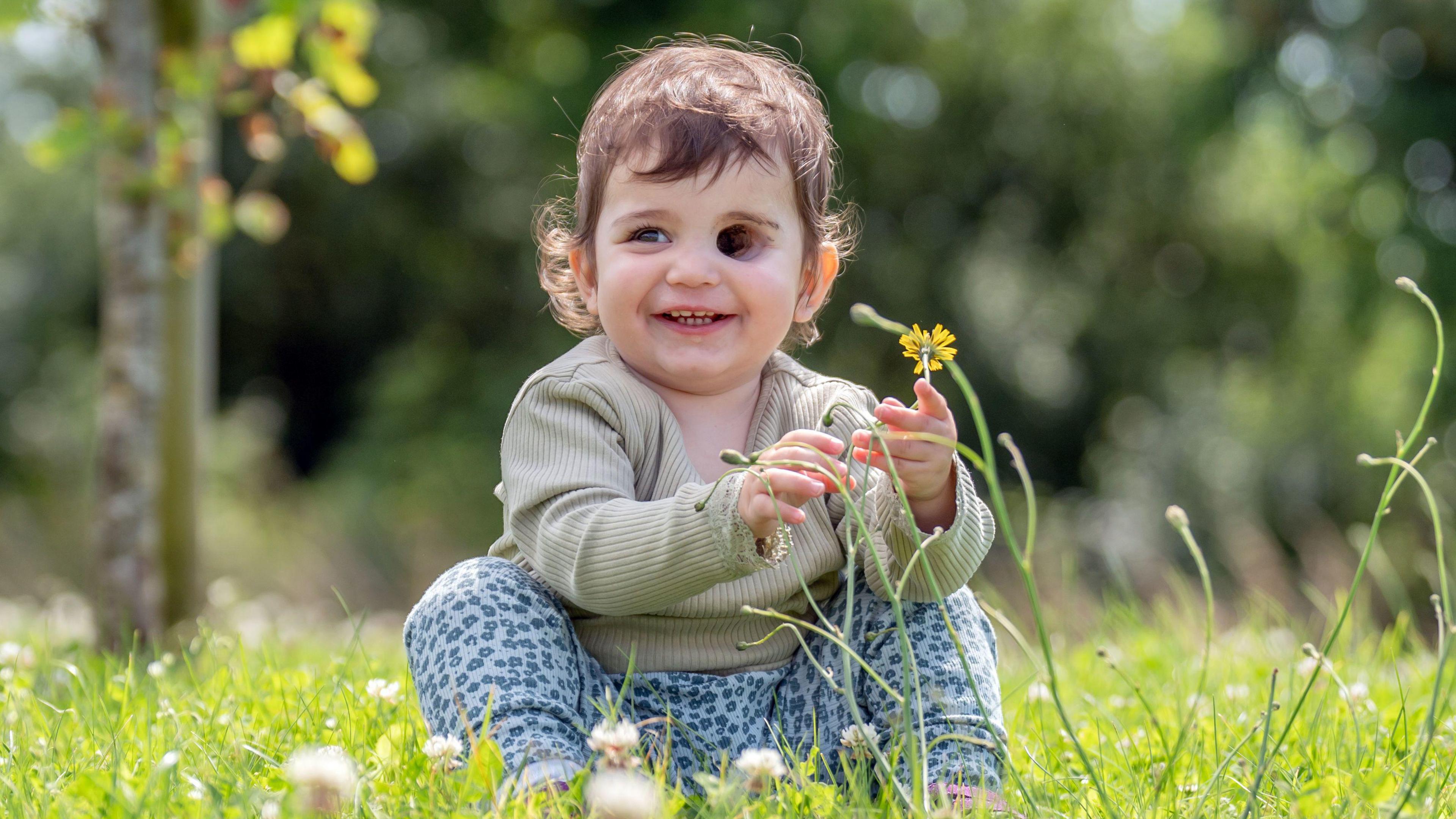
Nuala's parents said she has taken "everything in her stride"
Nuala, who has a brother, Jack, nine, had her eye removed and was given the all-clear in January.
Doctors then used a novel method to make her prosthetic eye.
Patients who require this type of prosthetic usually face a lengthy process of having a wax mould taken of the eye socket, which is then turned into a silicone mould.
In Nuala's case, the team took a series of MRI scans, CT scans and photographs to help them reconstruct her face.
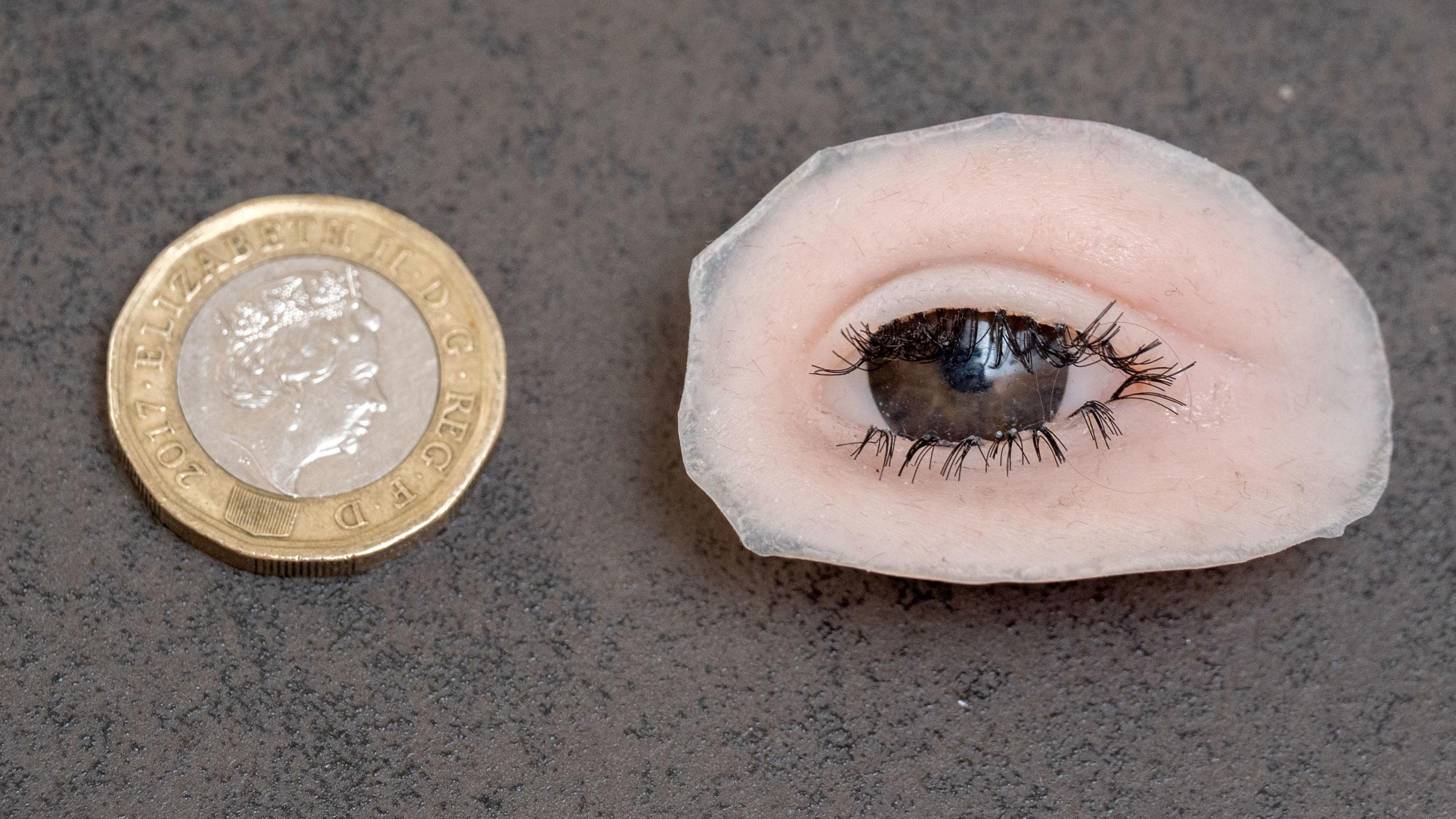
Nuala had her first fitting for the prosthetic eye in June, with medics now doing further work on colour matching
The images were used to shape the prosthetic and colour matching to Nuala's skin was then carried out in person.
Nuala's parents were also given the option of radiotherapy, but it could have a lifelong impact on their daughter because of her age.
Her surgeon, Ankur Raj, a consultant at Alder Hey Children's Hospital in Liverpool who worked with the prosthetics team at Aintree University Hospital, said radiotherapy can be "quite a destructive process, especially for children".
He added: "Not only can it damage the eye it causes the orbit to not grow equally to the other side."
Mrs Mulholland said: "Basically, for us, we felt like we had to make a good decision from two bad choices - radiotherapy or removing the eye.
"It felt like a rock and a hard place. We had to make the best decision for her."
Mr Raj added that Nuala has been "fantastic at getting things done".
"She just let us get on with it. She's been phenomenal. The family as a whole have just been brilliant."
Listen to the best of BBC Radio Merseyside on Sounds and follow BBC Merseyside on Facebook, external, X, external, and Instagram, external. You can also send story ideas to northwest.newsonline@bbc.co.uk, external
- Published24 April 2024
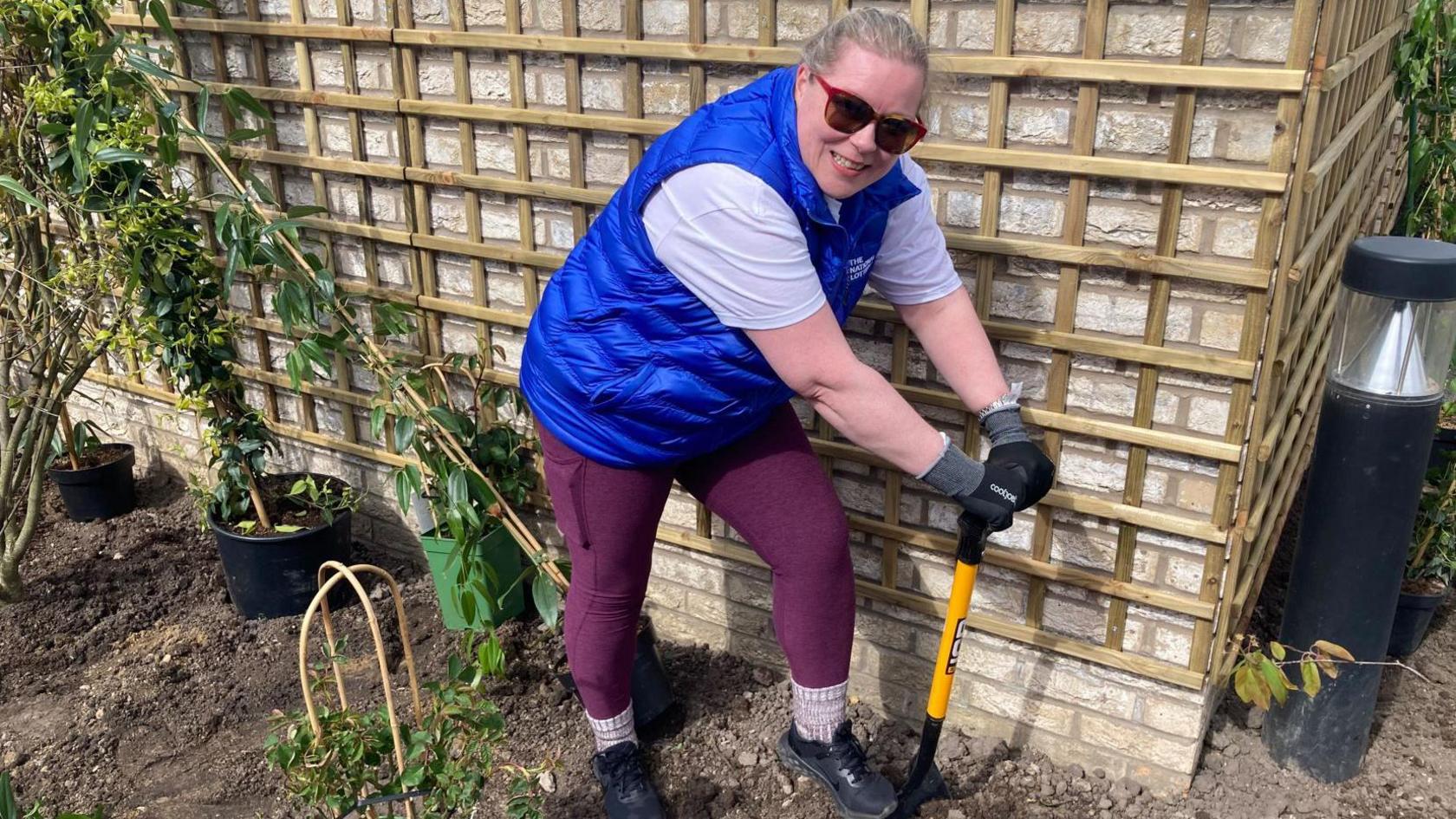
- Published17 April 2024
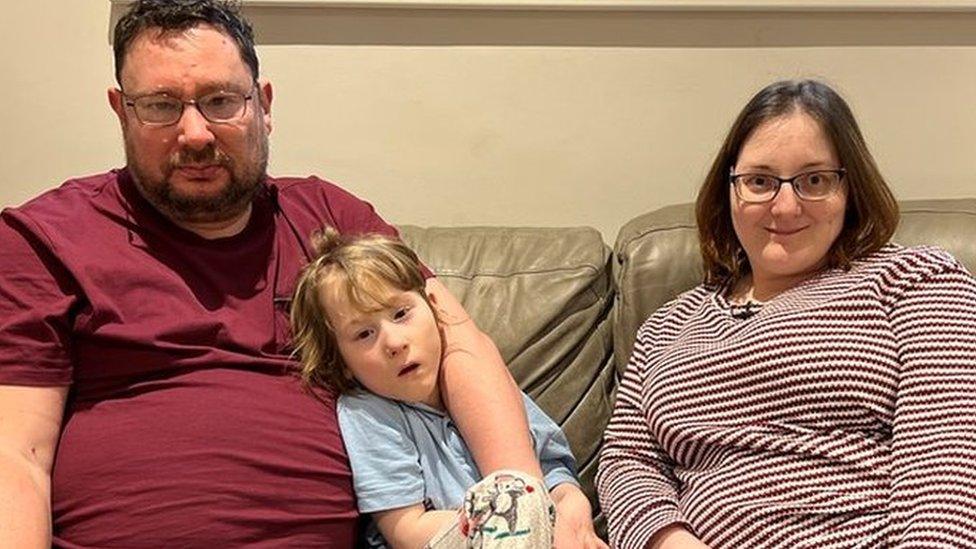
- Published16 April 2024
